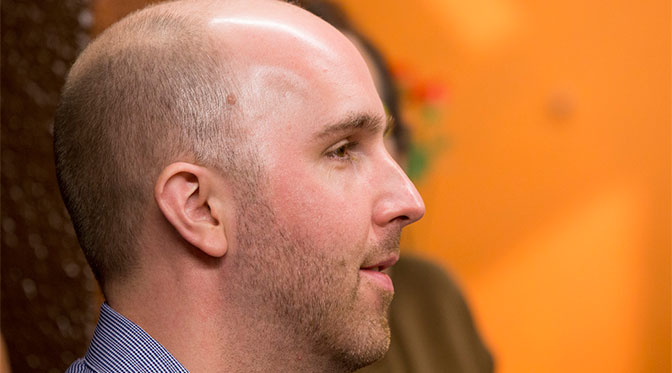“La economía de la oferta y demanda de Adam Smith se descomponen en la economía del conocimiento libre, donde la oferta de conocimiento no es agotable”.
Estrenamos hoy nuestra sección de microentrevistas con algunos de las participantes que nos acompañarán en la Cumbre del Buen Conocer. Empezamos con una entrevista con John Moravec, editor del proyecto Knowmad Society, co-director del instituo Invisible Learning y fundador de Education Futures LLC.
Moravec indicó que la economía del conocimiento libre permite mejorar, desarrollar y asegurar la calidad de vida de los actores sociales. Implica la creación de vías de transformación e innovación que integre el paradigma de desarrollo del capital humano y la educación.
A continuación, la entrevista íntegra (en inglés):
How important are free technologies in society?
First, I think we need to distinguish between “free” as in gratis and free as in libre. Free gratis technologies are available for no price. “Free” as in libre means that technologies are opened up for freer use – it does not necessarily mean that the cost is always free. The concept of free libre is most visible in the technology sectors because it has enabled enhanced pathways to rapid development and quality assurance through peer review.
Buen Conocer is built upon the free libre concept, which I think is likewise important for the development of a society.
I think that so much of our world is reflected in our “cut-and-paste” culture, which includes jazz, hip-hop, Wikipedia … and other tangibles and intangibles where we cut and paste new ideas together to create new meaning. People are tapping into the imaginations of others to build their own dreams. We are seeking out synergies as prosumers, not mechanical relationships through the consumption of the works of a few. In other words, we are working to connect with each other to create outcomes that are bigger than any of us.
Free culture was born after the emergence of the free software movement, using the same paradigms and free licenses. Is it possible to make the leap from free culture to free architecture, free agriculture or free economy?
I tend to think more broadly. Free culture has been present for a long time. Don’t forget beatniks and hippies and the impacts these cultural movements have had on our societies. Making the leap from free culture to free architecture, free agriculture, or other free economy manifestations isn’t as easy as flipping a light switch. We should not use the lens of classical economics to define our conversation. This isn’t an economic choice of capitalism “OR” a free libre economy. Rather it is an “AND” situation.
Just as many societies have transitioned from hunter-and-gatherer to agricultural, industrial, and knowledge-based societies, we still have hunter-gatherers, farmers, and factory workers participating in the economy with knowledge workers (just fewer of them as a percentage of the whole).
Likewise, as a society transforms from a classical economic model to one based on free libre concepts, we can expect elements of both to exist for a long time – just in different concentrations.The supply and demand economics of Adam Smith break down in the free knowledge economy, where the supply of knowledge is not exhaustible. This will no doubt create huge questions, uncertainties, and new opportunities as we embrace both models.
How would you define the commons?
The commons are elements of our environment (i.e., the air we breathe), cultural goods (i.e., music), and public goods (i.e., education) that are available for wide, public use.
Can the Social Knowledge Economy that Ecuador is creating be an alternative to capitalism?
As I stated in my response to question #2, I don’t think this is an “OR” question of alternatives. I believe the question should be, “can the social knowledge economy that Ecuador is creating build synergies with capitalism or lead to other, new opportunities?”
My perspective: Yes, it can. But since the two approaches can co-exist we must also set clear rules regarding each of our responsibilities and establish structures to mitigate dangers.
What are your expectations for Buen Conocer Summit in Quito?
Personally, I look forward to the full presentation of the Buen Conocer project and creating, collaborating, and identifying pathways for socioeconomic innovation (esp. in regard to education and human capital development). I look forward to exploring transformative pathways for creating a free libre social economy, and also to explore how this project also connects with the Sociedad Knowmad project that examines how these ideas can be integrated into education and human capital development paradigms. (see http://www.sociedadknowmad.com).
Given the rates of accelerating technological, social, and economic change, we cannot wait. The (r)evolution in human potential development needs to begin now – and Ecuador and the FLOK Society/Buen Conocer team deserve a lot of credit for taking risk and showing leadership in this area.
